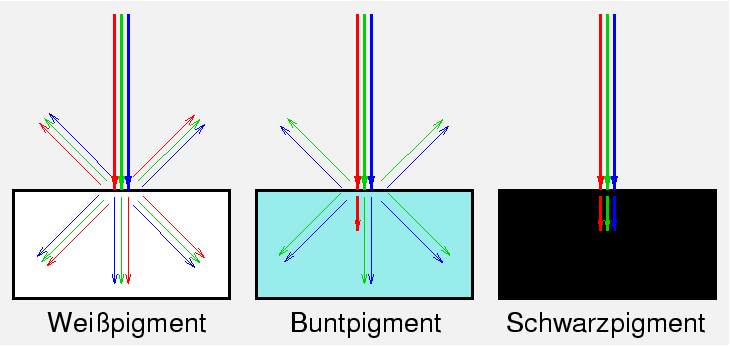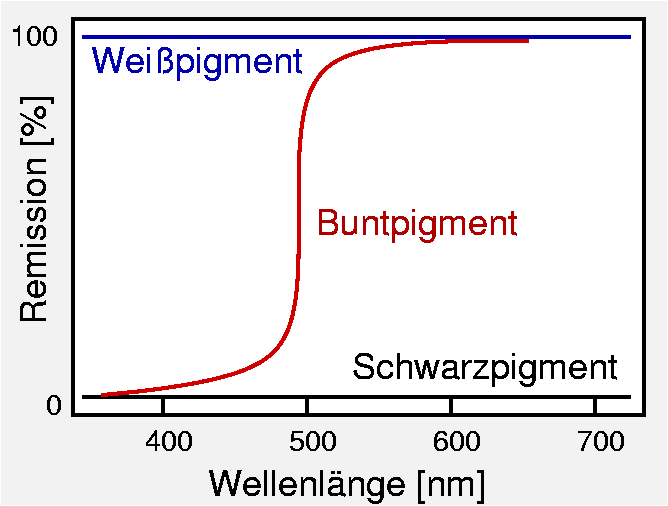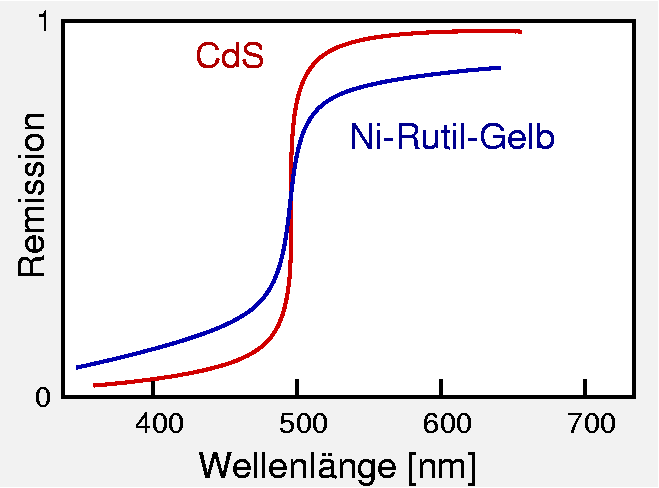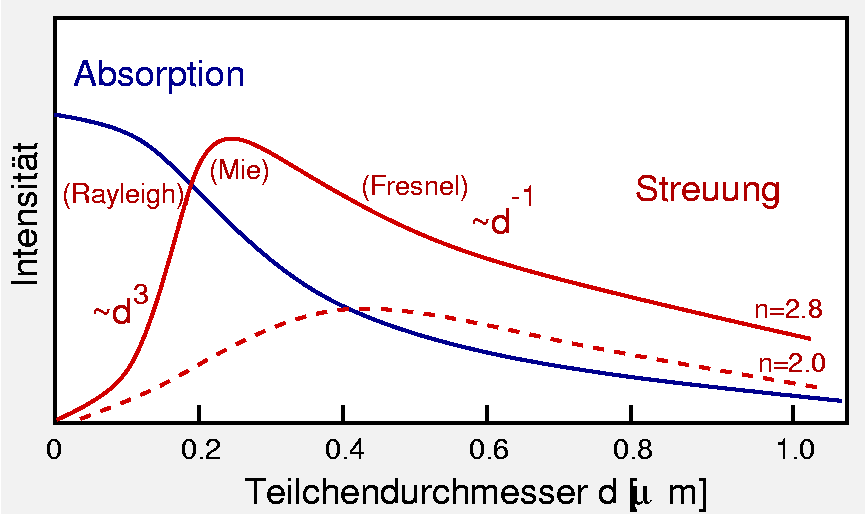
| . | . | . | . | . | . | . | . | . | . | . | . | . | . | . | . | . | . | . | . | . | . | . | . | . |
| <<<< | 0.1 | >>>> |
| Anorganische Pigmente | Einleitung |
| . | . | . | . | . | . | . | . | . | . | . | . | . | . | . | . | . | . | . | . | . | . | . | . | . |
| <<<< | 0.2 | >>>> |
| Anorganische Pigmente | Einteilung der Farbmittel |
| Farbmittel | |||||
| . | . | . | . | . | |
| Pigmente | Farbstoffe | ||||
| im Anwendungs- medium unlöslich | im Anwendungs- medium löslich | ||||
| . | . | . | . | ||
| organische Pigmente | anorganische Pigmente | ||||
| . | . | . | . | ||
| Schwarz-Pigmente | Weiß-Pigmente | Bunt-Pigmente | Effekt-Pigmente | ||
| optische Wirkung beruht auf: | nichtselektiver Lichtabsorption | nichtselektiver Lichtstreuung | selektiver Lichtabsorption | div. | |
| Beispiele: | Ruß (C) | Rutil TiO2 | Fe-Oxide | Goldpigmente | |
| Fe3O4 | ZnO | CdS | Al-Bronzen | ||
| Mn3O4 | Bleiweiß | Ultramarin | Glimmerpigmente | ||
| Co3O4 | .... | Cr-Pigmente | bas. Bleicarbonat | ||
| .... | .... | .... |
| . | . | . | . | . | . | . | . | . | . | . | . | . | . | . | . | . | . | . | . | . | . | . | . | . |
| <<<< | 0.3 | >>>> |
| Anorganische Pigmente | Optische Wirkung | |||

| . | . | . | . | . | . | . | . | . | . | . | . | . | . | . | . | . | . | . | . | . | . | . | . | . |
| <<<< | 0.4 | >>>> |
| Anorganische Pigmente | Schwarz/Weiß/Bunt ? | |||

| . | . | . | . | . | . | . | . | . | . | . | . | . | . | . | . | . | . | . | . | . | . | . | . | . |
| <<<< | 0.5 | >>>> |
| Anorganische Pigmente | Buntpigmente |

| . | . | . | . | . | . | . | . | . | . | . | . | . | . | . | . | . | . | . | . | . | . | . | . | . |
| <<<< | 0.6 | >>>> |
| Anorganische Pigmente | Teilchengröße: Absorption/Streuung | |||

| . | . | . | . | . | . | . | . | . | . | . | . | . | . | . | . | . | . | . | . | . | . | . | . | . |
| <<<< | 0.7 | >>>> |
| Anorganische Pigmente | Ursachen der Farbigkeit | |||